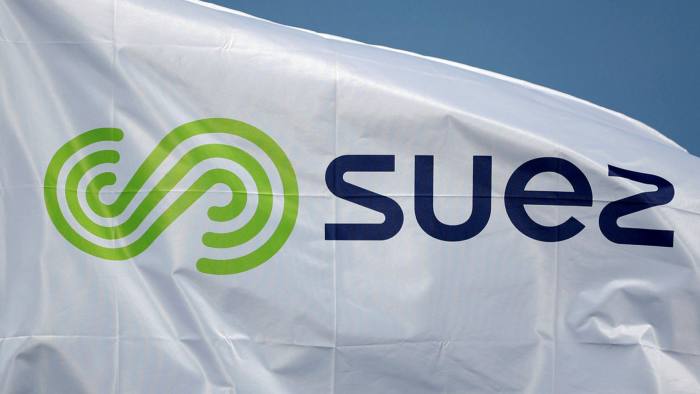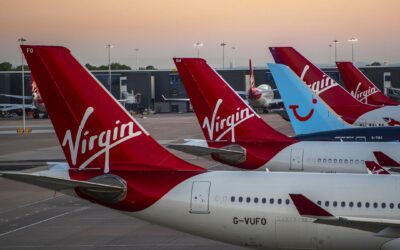Engie has agreed to sell the vast majority of its stake in French water and waste group Suez to Veolia, putting an end to the first phase of an acrimonious takeover attempt and teeing up the next.
After first bidding for 29.9 per cent of Suez held by Engie at the end of August, rival water services group Veolia took its prize on Monday evening.
Veolia paid €18 a share, or €3.4bn, and Engie said the deal would generate a pre-tax capital gain of €1.8bn.
“[The sale] will enable Engie to clarify its profile and boost its capacity to invest in renewable energies and infrastructure — the two growth areas it is focusing on to support the energy transition,” said Jean-Pierre Clamadieu, chairman of Engie.
Veolia has said it will follow up the purchase by eventually snapping up the rest of Suez — a plan the target company has called “particularly hostile”.
On Monday evening Veolia said it intended to tender for the rest of the shares at the same price of €18, but that could change if Suez were to sell assets or take other action that affected the value of the company.
Veolia added that the merger would not hit jobs in France and that a public offer would only take place once the “project has been favourably received by the Suez board of directors, possibly after the general meeting of its shareholders”.
Engie, which is part owned by the French state, had said at the end of July that it was ready to sell its 32 per cent stake in Suez. The energy group was going through its own period of turbulence after ousting its chief executive in February and was trying to steady the ship with a new strategy.
Its shares are down 20 per cent this year and it only named a new chief executive last week. The sale to Suez represented more than 40 per cent of its planned asset sales, said Mr Clamadieu.
After having its first offer rebuffed by Engie, Veolia increased its bid at the end of September. Engie, which was advised by Credit Suisse, BNP Paribas, Lazard and D’Angelin & Co, asked for, and got, more time to make its final decision, along with a pledge that the operation would be friendly.
Suez kept up its opposition even though on Monday another bid that it had been backing, from French private equity group Ardian, was taken off the table.
That alternative had been communicated to Engie last week but had lacked any defined price and would have taken six weeks of due diligence before being firmed up, said people familiar with the matter.
Suez said it “deplores the unnecessary precipitation of Engie board members in refusing to consider and discuss an alternative project” and that “it will put all the means at its disposal to avoid a creeping takeover or de facto control”.
The French state, which owns 22 per cent of Engie, said it had voted against the deal at Monday’s board meeting because of “the absence of an amicable agreement between the two companies Veolia and Suez”. The deal had become politically charged, with the government urging all sides to take their time and some politicians questioning its logic.
Mr Clamadieu on Monday evening said he believed a friendly deal between Suez and Veolia remained possible but that “a new delay given today would not have led to an agreement”. Veolia said it wished to “resume discussions” on Tuesday.
If negotiations remain hostile, the chief weapon for Suez may be the poison pill created last month when it put its French water assets, which Veolia had hoped to sell off to pre-empt competition concerns, into a protected foundation.
Veolia must now work out how to reverse that decision, with its hope being it can convince the current board to do so. The closing of any offer, including clearing the necessary competition hurdles, will take 12 to 18 months, said Veolia.
Source: Financial Times
Can’t stop reading? Read more
Clessidra enters Italian bakery sector with 70% Laurieri acquisition
Clessidra enters Italian bakery sector with 70% Laurieri acquisition Clessidra Private Equity has...
Apollo steps in with $745m financing package as Virgin Atlantic ramps up fleet investment
Apollo steps in with $745m financing package as Virgin Atlantic ramps up fleet investment...
Thoma Bravo secures shareholder approval for $12.3bn Dayforce take-private
Thoma Bravo secures shareholder approval for $12.3bn Dayforce take-private Thoma Bravo has...




